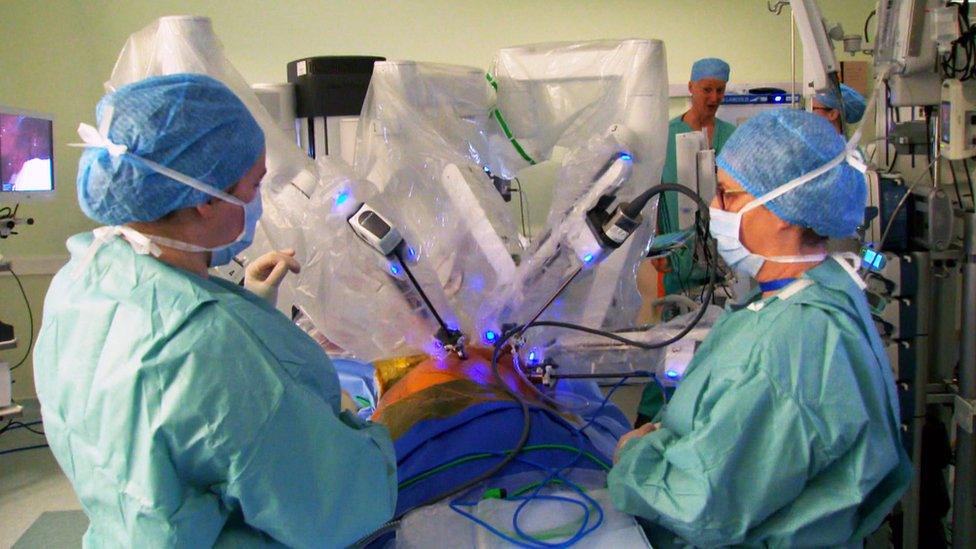Two new surgery robots at Devon hospitals
- Published
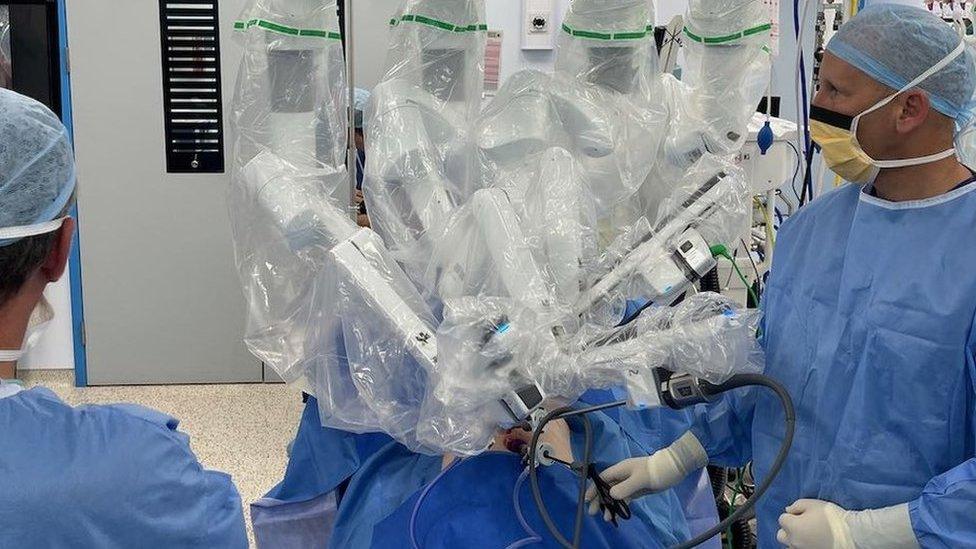
When using the robots, surgeons operate the instruments from an operating console and the instruments move like the surgeon's hands
Surgeons at two hospitals in Devon are excited to be expanding the use of robotic surgery in patient care.
Robotically-assisted surgery, external involves the use of robotic arms to provide additional precision.
The North Devon District Hospital (NDDH) in Barnstaple and the Royal Devon and Exeter Hospital (RD&E) will each have a new robot.
Surgeon Joel Smith said he was "thrilled" and "the advantages for our patients are significant".
The expansion has been funded by NHS England and the Cancer Alliance.
Across the UK, the technology has been credited with saving lives and helping cut hospital stays.
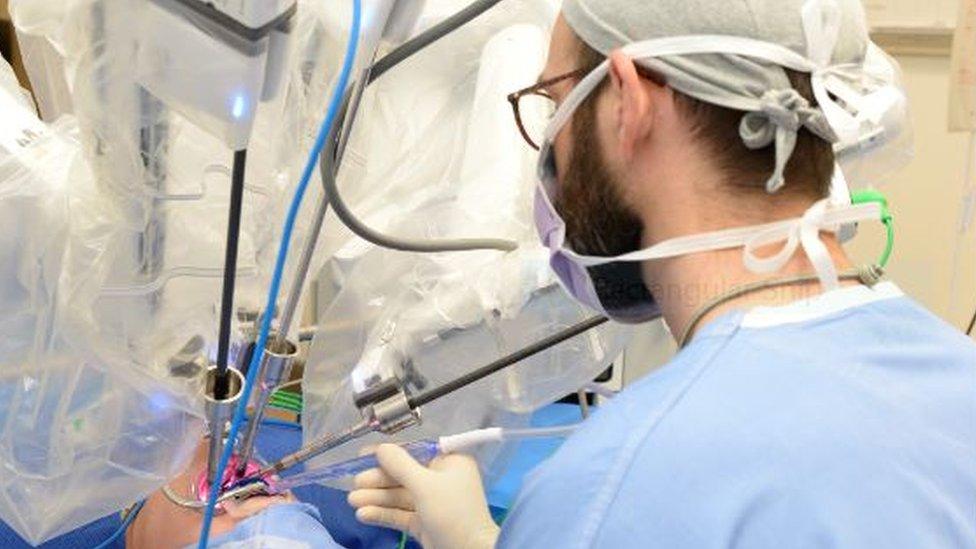
Robotically-assisted surgery involves the use of robotic arms to provide additional precision
Variations of the robots have existed at the RD&E hospital for 10 years, whereas this is the first of its kind for NDDH.
Patients at NDDH are now benefiting from robotic surgery for hiatal hernias, inguinal hernias and gallbladder removal for the first time.
This is the third robot at the RD&E hospital, and has been used by a team of ear, nose and throat (ENT) surgeons to remove tumours of the tonsils, tongue, voice box and swallowing passage, so far.
The first robot at RD&E has been in place for 10 years and has been used for urology operations, performing more than 2,000 cancer procedures.
A second type of robot has been in place for about four years, in support of major orthopaedic surgery.
'Thrilled'
Mr Smith, lead ENT surgeon, said: "Operations are faster and less invasive - what used to take up to 12 hours and involve open surgery can now be performed as keyhole surgery and take 60 minutes.
"Patients who would have previously needed intensive care nursing patients go straight back to the ward."
Mr Smith said the average length of stay was four days and some patients could go home the day after surgery.

Follow BBC News South West on Twitter, external, Facebook, external and Instagram, external. Send your story ideas to spotlight@bbc.co.uk.
- Published16 May 2023
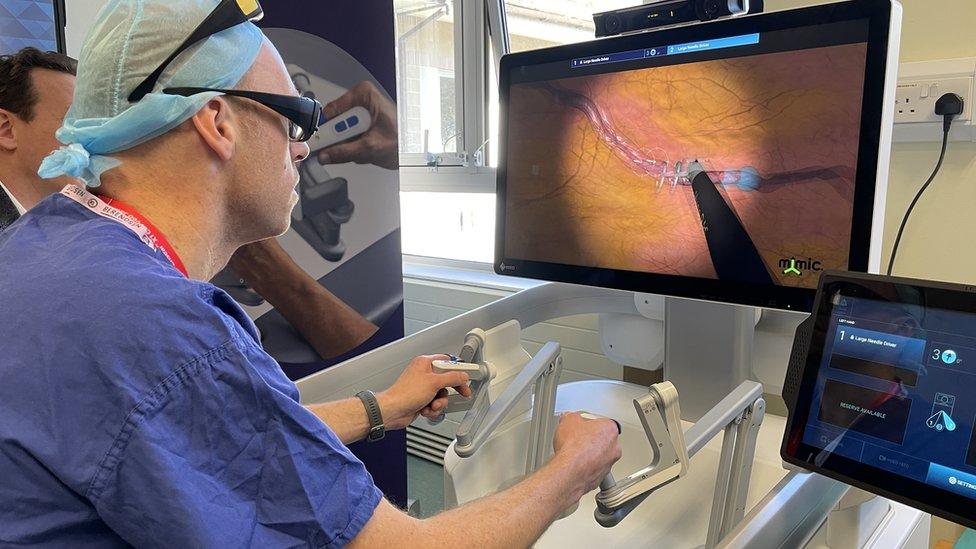
- Published10 March 2023
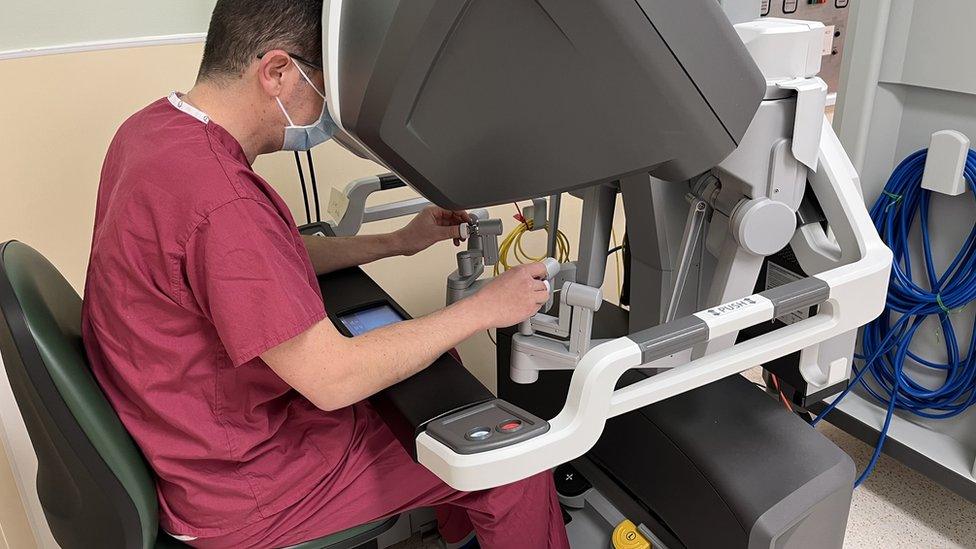
- Published7 January 2023
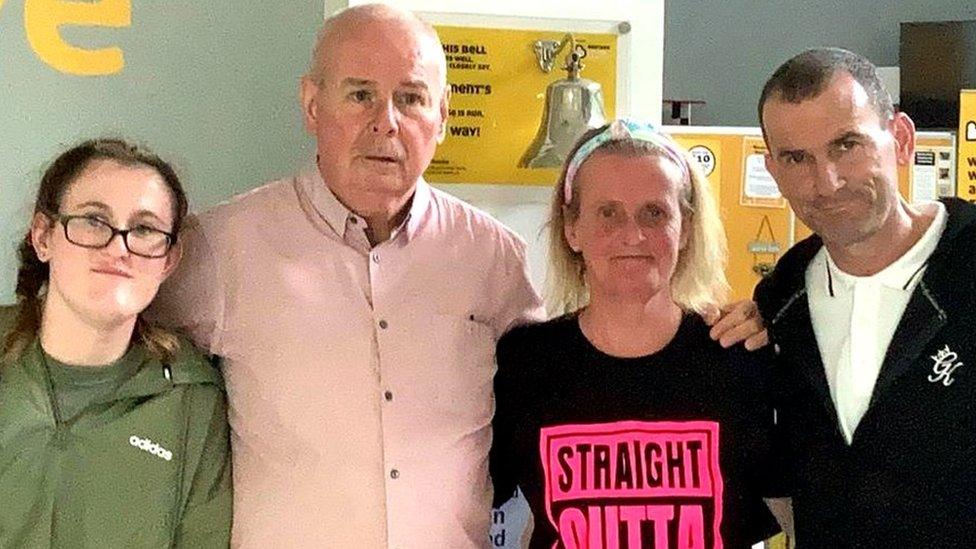
- Published12 December 2019
